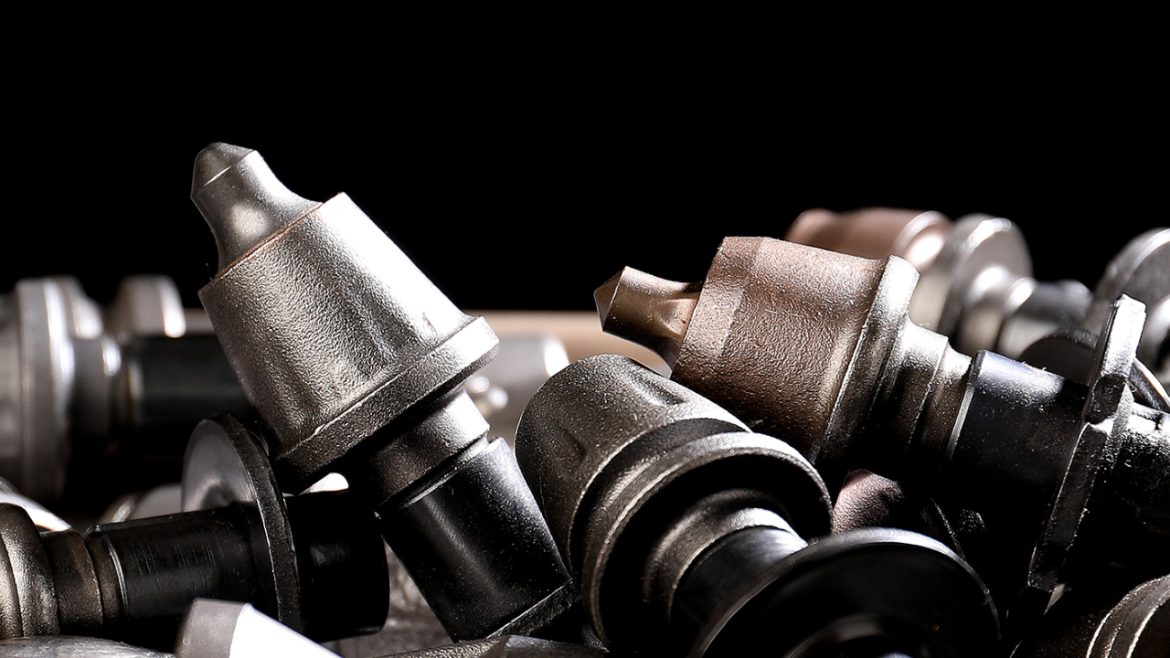Road milling teeth play a crucial role in the construction and maintenance of roads, highways, and other paved surfaces. These specialized cutting tools are designed to remove old, damaged, or worn-out asphalt and concrete layers, creating a smooth and even surface for subsequent overlays or repairs.
In this comprehensive article, we will delve into the world of road milling teeth, exploring their functions, types, applications, benefits, and maintenance tips to ensure optimal performance and longevity.
Introduction to Road Milling Teeth
Road milling teeth, also known as road planning bits or pavement milling cutters, are critical components of road milling machines. These machines also referred to as cold planers or asphalt milling machines, are used to remove the top layer of asphalt or concrete to a desired depth, leaving behind a clean, textured surface.
The removed material, or millings, can be recycled and used in the production of new asphalt or as a base material for road construction.
Types of Road Milling Teeth
There are several types of road milling teeth available in the market, each designed to suit specific milling tasks and material types. The most common types include:
Carbide-Tipped Teeth
These teeth are equipped with carbide inserts, which provide exceptional cutting performance and durability, making them suitable for hard asphalt and concrete surfaces.
Diamond-Tipped Teeth
Ideal for cutting through heavily reinforced concrete and tough materials, diamond-tipped teeth are known for their superior wear resistance and longevity.
Steel Teeth
Steel teeth offer a cost-effective solution, making them a viable choice for light to moderate milling tasks and materials with lower abrasiveness. Due to their economical nature, steel teeth are often preferred for projects that do not involve heavy-duty milling requirements and where the budget is a significant consideration.
Applications of Road Milling Teeth
Road milling teeth for asphalt and concrete find applications in various construction and maintenance projects, including:
- Removing old or damaged asphalt layers to prepare the surface for a new overlay.
- Breaking and removing deteriorated concrete for replacement or repair.
- Creating grooves or patterns on road surfaces for improved traction and safety.
- Removing excess material to widen existing roads or highways.
Benefits of Using Road Milling Teeth
Using road milling teeth for asphalt and concrete offers a multitude of benefits in road construction and maintenance. These specialized cutting tools play a crucial role in removing old, damaged asphalt or concrete surfaces, and preparing the road for resurfacing or repairs.
Cost-Effectiveness
Road milling teeth offer a cost-effective solution for road maintenance and repair, as they eliminate the need for costly manual labour and minimize material wastage through recycling.
Enhanced Safety
A smooth and even road surface achieved through milling ensures better vehicle traction, reducing the risk of accidents, especially in adverse weather conditions.
Efficient Material Removal
Road milling teeth can remove large amounts of material in a short period, enabling faster project completion and minimizing traffic disruption.
Environmentally Friendly
Recycling the milled material reduces the demand for new aggregates and conserves natural resources, making road milling an eco-friendly option.
Maintenance and Care of Road Milling Teeth
To ensure optimal performance and prolong the lifespan of road milling teeth for asphalt and concrete, regular maintenance is essential. Here are some maintenance tips:
- Inspect the condition of the teeth, ensuring they are not excessively worn or damaged.
- Store the teeth in a clean, dry environment to prevent corrosion and damage.
- Sharpen dull teeth or replace severely worn or damaged ones to maintain cutting efficiency.
- Clean the teeth after use to remove debris and prevent build-up.
Sum Up
Road milling teeth are indispensable tools in the road construction and maintenance industry. Their versatility, efficiency, and cost-effectiveness make them a preferred choice for various milling applications. By choosing the right type of teeth for specific projects and following proper maintenance practices, contractors can ensure that road milling tasks are completed efficiently and produce high-quality results for asphalt and concrete surfaces.

